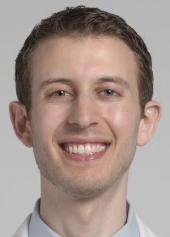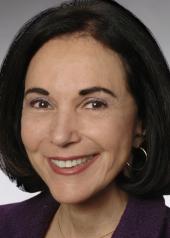By Nicholas Roznovsky

Attributing the majority of blame for the nation's mass shootings on mental health issues is misleading and potentially harmful, according to two UCSF physicians.
Statements by policymakers, journalists, and others placing the blame for America's recent spate of mass shooting incidents solely on mental illnesses are diverting the nation from discussing more contributory factors, such as widespread access to firearms, according to a new commentary written by two UC San Francisco behavioral health experts. The article, co-authored by resident physician Matthew Hirschtritt, MD, MPH, and professor of psychiatry Renée Binder, MD, was published online February 28, 2018, in the Journal of the American Medical Association.
"Furthermore, attributing mass shootings to untreated serious mental illness stigmatizes an already vulnerable and marginalized population, fails to identify individuals at the highest risk for committing violence with firearms, and distracts public attention from policy changes that are most likely to reduce the risk of gun violence," they added.
The pair pointed to several recent research studies indicating that patients with mental health conditions are far more likely to be the victims of violence than they are to be the perpetrators. In fact, a 2017 study demonstrated that only 12 percent of adults in state prisons charged with violence gun offenses had any prior history of psychiatric hospitalization, and a separate 2015 study demonstrated than less than three percent of patients released from psychiatric inpatient settings committed an act of gun violence over the subsequent year.
Binder, a past president of the American Psychiatric Association (APA) and the founding director of UCSF's Psychiatry and the Law Program, said that clinicians have an obligation to dispel the myth that mental illness is a prime contributor to gun violence. “I believe that psychiatrists have a role in advocacy and education. We have a responsibility in terms of educating people that guns are very dangerous, should be safely stored, and should be taken away from dangerous people,” she told APA's Psychiatric News. “Most people with mental illness will never commit a mass shooting, and this rhetoric leads to increased shame, societal reduction, stigmatization, and problems in gaining stable employment and housing.”
Other factors play a far greater role in contributing to the risk of gun violence, the authors say. Among those are individual considerations – such as a prior history of violent acts, gang affiliation, substance and alcohol use, and experiencing violence – as well as the relative ease of obtaining access to firearms in the United States, both legally and illicitly. Although individuals with a history of psychiatric hospitalization may be prevented from purchasing firearms in certain states, access to to guns through unregulated sources such as friends and family or unreported sales is nearly ubiquitous.
“Attributing mass shootings to untreated, serious mental illness is politically expedient; by drawing attention to those with serious mental illness, policy makers may avoid having to make difficult decisions about regulating firearm distribution and access,” Hirschtritt and Binder wrote in the JAMA article. “The burden of untreated serious mental illness is expressed more often in human problems, not in acts of violence. ... Reducing the risk of mass shootings and improving mental health care are two different issues and should not be conflated. Millions of Americans who are diagnosed with serious mental illness will never engage in any gun violence and should not be further stigmatized.”
Their comments echo the sentiments expressed in a statement issued last week by the APA, American Academy of Family Physicians, American Academy of Pediatrics, American College of Obstetricians and Gynecologists, and American College of Physicians calling gun violence a "pervasive threat to public health" and urging leaders to fund research while establishing appropriate limits on firearms made available to private citizens.
"While these mass shootings command our attention," the physician groups noted, "far too many Americans remain at risk daily for suicide, homicide, and unintentional injury because of the current policy regarding access to guns in the United States."
Read the article
- Journal of the American Medical Association: A Reassessment of Blaming Mass Shootings on Mental Illness
Further coverage
- APA Psychiatry News: Blaming mass shootings on serious mental illness has harmful effects, says APA past president
- Healio: Experts say mental illness 'should not be stigmatized' in wake of mass shootings
About UCSF Psychiatry
The UCSF Department of Psychiatry and the Langley Porter Psychiatric Institute are among the nation's foremost resources in the fields of child, adolescent, adult, and geriatric mental health. Together they constitute one of the largest departments in the UCSF School of Medicine and the UCSF Weill Institute for Neurosciences, with a mission focused on research (basic, translational, clinical), teaching, patient care and public service.
UCSF Psychiatry conducts its clinical, educational and research efforts at a variety of locations in Northern California, including UCSF campuses at Parnassus Heights, Mission Bay and Laurel Heights, UCSF Medical Center, UCSF Benioff Children's Hospitals, Zuckerberg San Francisco General Hospital and Trauma Center, the San Francisco VA Health Care System and UCSF Fresno.
About the UCSF Weill Institute for Neurosciences
The UCSF Weill Institute for Neurosciences, established by the extraordinary generosity of Joan and Sanford I. "Sandy" Weill, brings together world-class researchers with top-ranked physicians to solve some of the most complex challenges in the human brain.
The UCSF Weill Institute leverages UCSF’s unrivaled bench-to-bedside excellence in the neurosciences. It unites three UCSF departments—Neurology, Psychiatry, and Neurological Surgery—that are highly esteemed for both patient care and research, as well as the Neuroscience Graduate Program, a cross-disciplinary alliance of nearly 100 UCSF faculty members from 15 basic-science departments, as well as the UCSF Institute for Neurodegenerative Diseases, a multidisciplinary research center focused on finding effective treatments for Alzheimer’s disease, frontotemporal dementia, Parkinson’s disease, and other neurodegenerative disorders.
About UCSF
UC San Francisco (UCSF) is a leading university dedicated to promoting health worldwide through advanced biomedical research, graduate-level education in the life sciences and health professions, and excellence in patient care. It includes top-ranked graduate schools of dentistry, medicine, nursing and pharmacy; a graduate division with nationally renowned programs in basic, biomedical, translational and population sciences; and a preeminent biomedical research enterprise. It also includes UCSF Health, which comprises top-ranked hospitals – UCSF Medical Center and UCSF Benioff Children’s Hospitals in San Francisco and Oakland – and other partner and affiliated hospitals and healthcare providers throughout the Bay Area.







